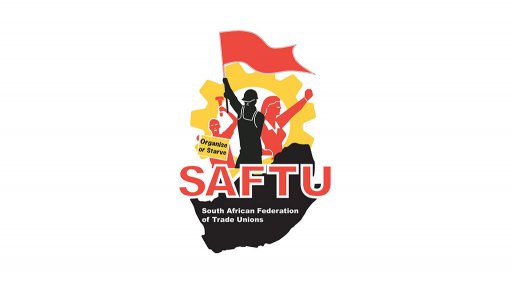
The South African Federation of Trade Unions congratulates the Treatment Action Campaign on the 20th anniversary of its launch on 10 December 1998.
We join them in celebrating two decades of brave and tenacious struggle which led to thousands lives being saved by the long battle to force the government to provide antiretroviral treatment, which has led to South Africa a now having the largest programme in the world.
TAC also helped to end the stigmatization of HIV and Aids, and particularly the prejudice against the lesbian and gay community, who were frequently blamed for their own misfortune when affected by the virus. This was symbolized by their famous T-shirt “HIV positive”.
The background to TAC’s launch was a burgeoning tragedy for thousands of victims, their families and society as a whole. Southern Africa was home to about 30% of people living with HIV/Aids worldwide, yet it had less than 2% of the world’s population.
The SA Medical Research Council reported that from 1997 to 2002, deaths from Aids increased by 57%, and among those aged 25 to 49 by 116%.
Yet the then President Mbeki and Minister of Health Tshabalala Msimang were in complete denial, trying argue that poverty, not the HIV virus, was responsible for these deaths from Aids, that “a virus cannot cause a syndrome”, that antiretroviral medicines were poisonous and that the TAC was a middle-class group whose members were being manipulated by foreigners.
They refused to take any action to stem the epidemic by rolling out ARVs, despite growing evidence, including from the TAC, who commissioned tests on pregnant women, which showed that ARVs could cut the HIV transmission rate from around 30% to 13%.
The TAC turned to the courts and won an historic victory when a judge ordered the government to start providing pregnant, HIV-positive women and their babies with the ARV drug nevirapine.
The next battle was with the pharmaceutical monopolies, who were charging as much as R10 000 a month for ARV prescriptions, which were unaffordable for the big majority of sufferers. TAC’s response was to smuggle in supplies of generic ARVs from other countries.
TAC’s next victory was in 2003 when the Cabinet approved a comprehensive Aids treatment plan that would offer free ARVs in all districts of the country in November 2003. Even then however Tshabalala-Msimang and Mbeki continued to argue that various herbal treatments and diets were just as effective as ARVs, with fewer toxic side-effects.
TAC leader Zachie Achmat almost became a martyr when he refused to take ARVs until everyone had access to them. He started to get sicker but argued that “at least 600 South Africans a day were dying because of HIV and because the government was neglecting the issue”. Eventually only Nelson Mandela was able to persuade him to start taking ARVs.
The TAC led a magnificent fight on the provision of ARVs, but the war against unnecessary deaths from Aids and other serious illnesses goes on. Cuts in spending, dictated by credit ratings agencies and big business, still lead to sufficient drugs not been delivered in time and severe understaffing at public hospitals and clinics.
SAFTU welcomes today’s announcement by Health Minister Aaron Motsoaledi that he is going to fill 5 300 vacant positions in healthcare facilities. He even admitted that provinces had not filled these posts “because health budgets were cut”. Cut by his own ANC leaders!
The TAC must share the credit for this important first step to improve the levels of service to the sick. They not only won a huge victory on antiretrovirals, but pioneered new methods of struggle - a combination of legal action in the courts with mass action on the streets - which has inspired others like the #feesmustfall movement and several unions which have won victories at the Constitutional Court.
SAFTU send the TAC best wishes for the next 2 years and many more after that.
Issued by The South African Federation of Trade Unions